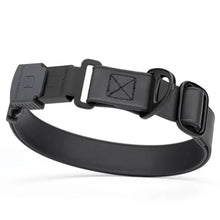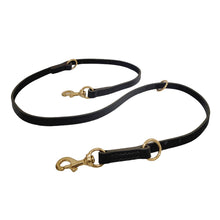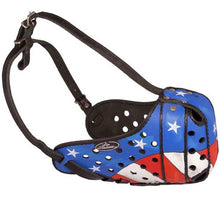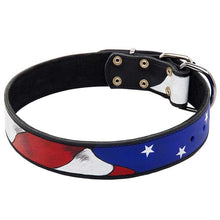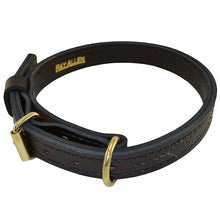10 Tips For Living With A German Shepherd In An Apartment

German shepherds are intelligent working dogs that can make wonderful loyal companions. However, they need a lot of exercise and mental stimulation to keep them from getting frustrated and potentially developing behavior problems.
You may be wondering if a German shepherd would make a good pet if you live in an apartment. The short answer is yes. If you’re prepared to meet their needs, which is more of a challenge without a fenced yard.
The good news is that you can provide a German shepherd with a loving home if you live in an apartment. If you already live in one or are considering downsizing, we have some tips to help you and your dog thrive together in an apartment or condo setting.
1. Verify if there are any breed restrictions and pet fees
Before adding a German shepherd to your life or moving into an apartment with your dog, the first thing you need to do is verify that the complex you live in or want to move to allows German shepherds and if there are any pet fees. If they don’t, it’s safe to say, you can’t hide a German shepherd so you’ll need to move or look elsewhere.
2. Choose your apartment carefully
Before moving in, consider the location of the apartment carefully. For example, an apartment on the top floor might be quieter than having someone living above you. However, if your dog will be running around or has trouble climbing stairs, it may be better to live on the bottom floor.
German shepherds have excellent hearing and sense of smell so that means they’ll hear and smell everyone passing by your door so an end unit might be a better choice. They also have a very loud bark that could easily disturb the neighbors.

3. Choose your dog carefully
Before you run out and rescue or buy a German shepherd, be sure that the dog is suitable for apartment living. What we mean is that working-line German shepherds typically have a higher drive and need for more physical activity than those bred to be pets so apartment living will be more of a challenge. Some things to consider when choosing a dog are their lineage, the personality of the parents, how the dog reacts to other dogs, and how it responds to people of all ages.
When choosing a dog, consider how it will fit into your apartment lifestyle. For instance, an older dog that is potty trained may be easier to acclimate than a young puppy that will bark and potentially disturb the neighbors while you’re out.
4. Be sure to socialize
If you live in an apartment, socializing your dog so they are comfortable around people, kids, bikes, loud noises, lots of movement, other pets, games, and the like is not negotiable. Your dog will have to adapt to living in a community setting or it will become a problem for both of you.

5. Provide basic obedience training
When you live in a community, training is more important than ever. If you want your dog to be a good neighbor that is welcomed around your complex they will need to be taught basic obedience skills, at minimum.
6. Ensure your dog gets plenty of exercise, playtime, and mental stimulation
Since you don’t have a private yard, you’ll have to figure out how to provide your German shepherd with enough exercise, playtime, and mental stimulation to keep them happy in an apartment. Unless your dog is very young or very old, a quick walk around the block will not be enough.
Some outdoor ideas to help include:
• Ask a friend or family member if you can use their yard
• Rent a Sniff Spot or private dog park
• Go for a walk
• Go jogging
• Go hiking
• Go swimming
• Explore different dog-friendly places
• Train your dog on a long line
• Take a class
• Enroll in agility
• Play tug games
• Train with distractions
• Hire a trustworthy dog walker
• Forgo the dog park and set your dog up for a play date with a compatible dog

Some indoor ideas include:
• Teach your dog some tricks
• Practice training
• Nose work games
• Hide and seek
• Get your dog a treadmill
• Build an indoor obstacle course
• Alternate feeding puzzles
• Long-lasting safe chews
• Tug games
• Use indoor fetch toys
• Alternate interesting chew toys
• Doggy daycare
7. Stick to a routine
Dogs thrive when they have a routine and that is even more important when living in a community where things like unwanted barking or destructive behavior could quickly become a problem. Set your dog up for success by keeping their feeding times, walks, playtime, and your departures and arrivals on a schedule.
8. Crate train
If your apartment requires inspections or maintenance while you’re not home, your dog will need to be crated or taken off-site for the day. There are many benefits to crate training, even if you don’t routinely crate your dog. At a minimum, if your dog is comfortable in a crate, or if they have to spend time in one (such as when traveling or at the vet), it won’t be as traumatic an experience for them.

9. Give them their own space
Even in an apartment, your German shepherd will need their own space to relax and unwind. You can provide them with their own space by getting them a kennel or bed and placing their toys nearby. Teach them to go to that place when they need to chill out and encourage them to rest there when you don’t want them underfoot.
10. Consider the challenges
Owning a German shepherd while living in an apartment will pose some challenges because they require plenty of exercise and mental stimulation every single day, rain or shine or they’ll create their own entertainment, which you probably won’t like. But, if you can provide them with a place to stretch their legs, run, play, walk, explore, and train, it is doable.
Living in an apartment with a large, active dog takes a lot of responsibility and commitment. It will be your responsibility to protect your dog and those living in close quarters to you so training and maintaining control of your pet at all times is important.

Some challenges you’ll need to overcome before moving a German shepherd into your apartment include:
• Lack of space for your dog to exercise and run in
• Where your dog will go for potty breaks realizing this will be on a leash each time
• The safety of other people and pets around a naturally protective dog with high prey drive
• Noise and distractions that can cause your dog to bark while you’re not home
• Potential behavior problems due to boredom or distractions outside the windows and doors
• Controlling anxiety and stress that comes with living in a small space with a lot going on outside
• Safety issues such as balconies, parking lots, loose dogs, kids on bikes, and much more
• How you’ll contain your dog on a patio or in a small yard
• How you’ll be a good neighbor with a German shepherd
We hope that you find these tips helpful. If you ever find yourself having to move to an apartment with your German shepherd, please connect with people who have successfully done it.
Living in a small space with a German shepherd might be challenging at times but it can be manageable if you are committed to the dog and their training so they learn what is expected of them. As always, please feel free to share this article with your friends.
You might also like: The German Shepherd's Prey Drive: Understanding And Managing Natural Instincts For A Well-Behaved Dog






